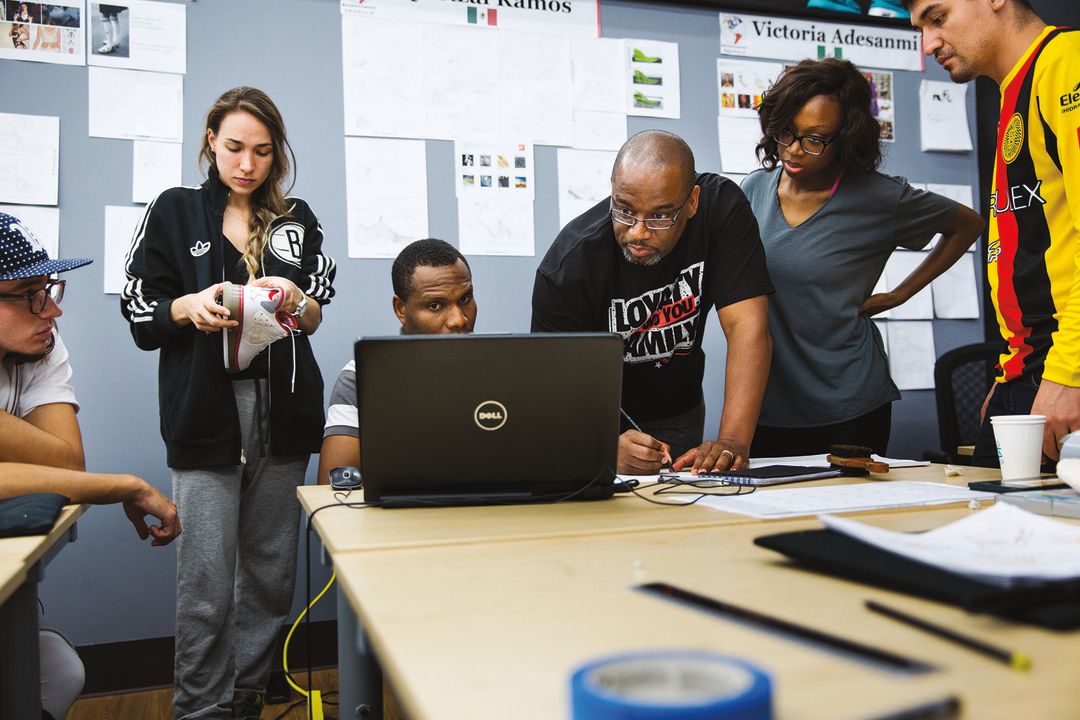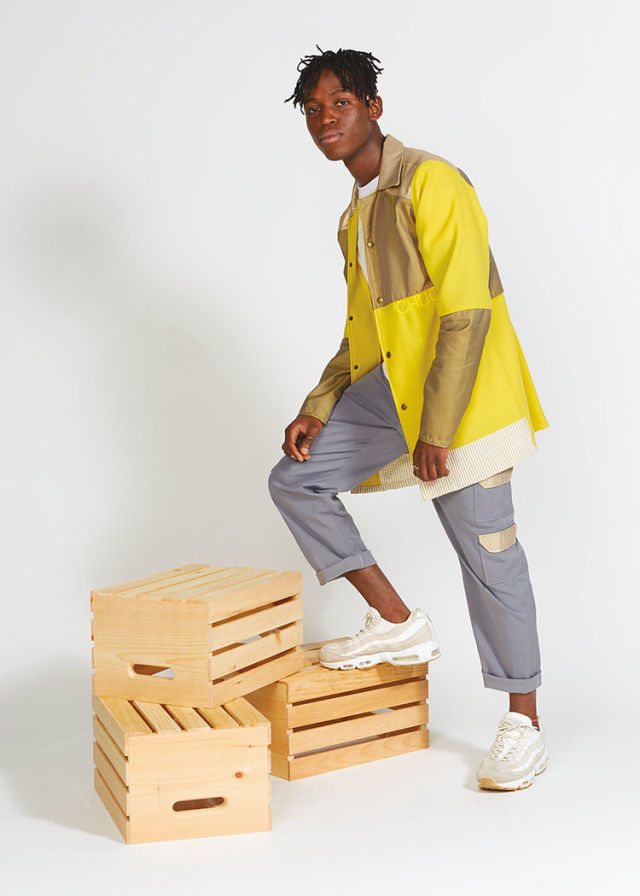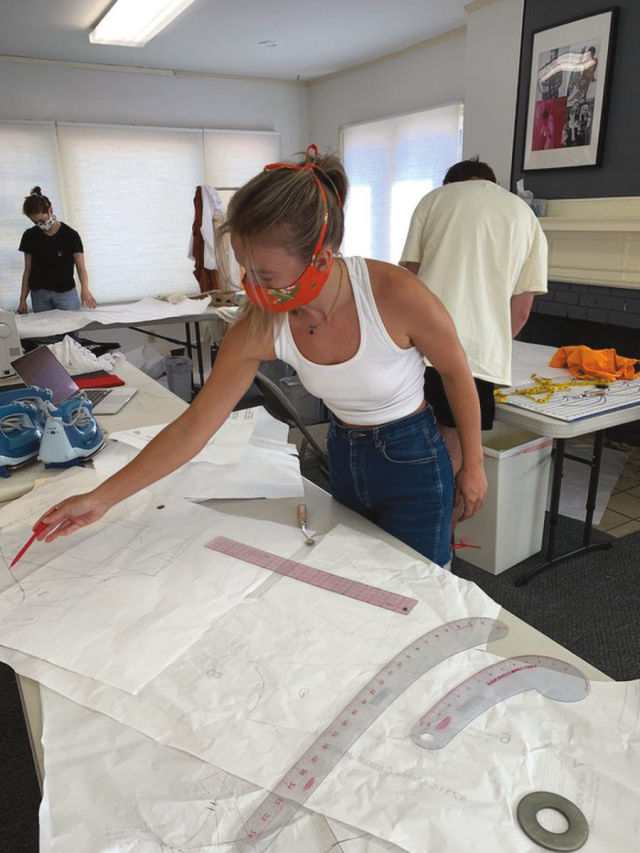Vanishing Higher-Ed Hasn’t Put a Damper on These Portland Fashion Schools

Pensole founder D'Wayne Edwards teaching a class at the school's Old Town headquarters.
Image: Courtesy Pensole
In 2018, the Art Institute of Portland—the only college in the city offering bachelor’s degrees in apparel design and fashion marketing—closed its doors, shifting the balance of local design education options. The school, well known for its fashion alums (including no fewer than three Project Runway contestants) had been through a tumultuous few years, with the nationwide chain of colleges forced to grant $103 million in loan forgiveness on top of a $95 million multistate lawsuit settlement to students for consumer fraud. Since then, Portland has also seen the closures of the 112-year-old Oregon College of Art & Craft, which offered a smattering of experimental design courses, as well as other non-fashion Portland-area mainstays Marylhurst and Concordia.
But the great higher-ed vanishing hasn’t put a damper on advances in the local fashion scene. Nike, Adidas, and Columbia all continue to operate design studios here that employ hordes of fashion folk. There’s three-year-old Sneaker Week, an annual footwear event that brings in industry kin from all over the country. And, prepandemic, of course, local fashion shows were continuously popping up with new names and design collectives, like “The Ones” on E Burnside, which lets newbie designers share space alongside veterans of the fashion world.

A look from PFI student Chuck Ryan's final collection.
Image: Courtesy Tom Boehme
The question, in the absence of higher ed, is where are all of these people learning their craft?
In Old Town, Pensole Footwear Design Academy just hit a milestone anniversary—10 years since founder D’Wayne Edwards opened his school focused on getting students right into careers in the footwear industry. The school’s three-month courses are immersive, with Edwards pushing a “learn by doing” curriculum that hinges on his impressive knowledge and background in the footwear world. (He’s one of only six people to design a Nike Air Jordan shoe.) And Pensole’s receipts are impressive, with hundreds of alumni now creating innovative footwear at big-name spots including Adidas, Asics, and New Balance. This fall, as COVID-19 continues to rear its ugly head, Pensole classes are online for the fully invested, while casual onlookers can comb through a bank of tutorials on the school’s Instagram page.
Nestled within the expansive Pensole block is FAAS (Functional Apparel & Accessories Studio). There, students share a workspace stuffed to the brim with primo materials and industrial equipment, and the same hands-on learning methods employed at the design academy, this time helmed by industry veteran Angela Medlin. As the school’s founder and design director, Medlin knows traditional fashion schools cover a wide range of topics, such as tailoring and couture techniques, which might not give students time to zero in on the athletic and outerwear industries that dominate Portland. She calls upon her range of experience as a design director for Eddie Bauer, Levi’s, Adidas, and more to give her students real-world knowledge of how these apparel studios operate in terms of making tech packs, prototyping, and industrial sewing. She’s also hooked in with a network of other industry vets, many of whom come in and give students up-to-date mentorship
sessions.

Students in a patternmaking class at PFI.
Image: Courtesy PFI
Across the river in the Hollywood District, Portland Fashion Institute caters to that seeking-a-toehold-in-the-industry demographic, but also embraces Portland’s indie days of yore with a program that runs students through not only the ins and outs of things like sewing knits and Optitex computer patternmaking, but also business classes on how to run your growing design empire. PFI founder Sharon Blair was a full-time instructor at the Art Institute of Portland before leaving to found her own school in 2010. That move, she says, was about taking her years of education experience plus the perspective from running her own small clothing line, SKB, to students for a fraction of the cost. Despite having several of the same instructors helming classes, the accredited school is vastly more affordable than the Art Institute, where the final tuition hit $485 per credit hour vs. Blair’s zero-debt vision. At PFI things clock in around $30 an hour for a sewing class and just $55 per patternmaking class, even with access to the expensive computer programs.
The commonality among all the schools? Each one gets students trained for a future career with classes that are faster and cheaper than traditional colleges, all with access to industry professionals that value time on the floor over textbooks.




